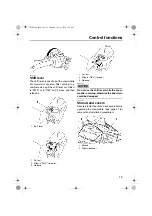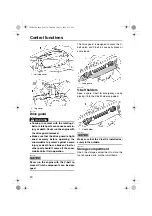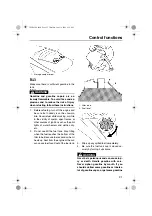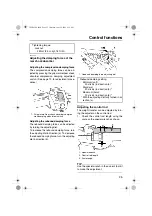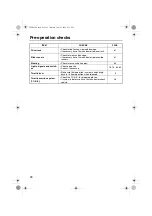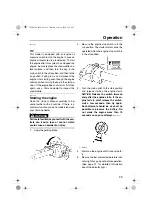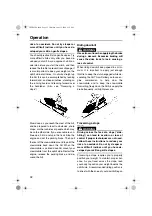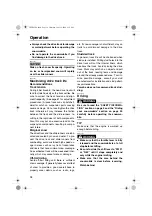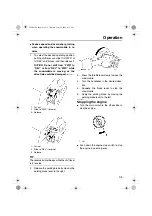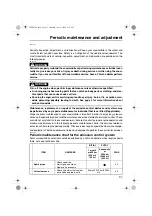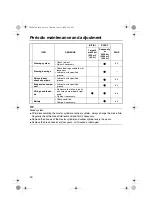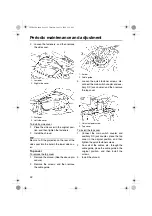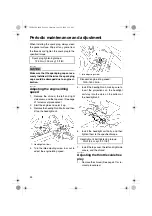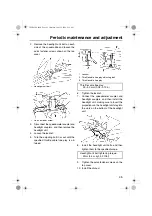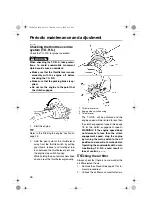
Operation
33
the seat and the foot of your uphill leg on the
running board. This position will make it easi-
er for you to shift your body weight as needed.
Snow and ice are slippery, so be prepared for
the possibility that your snowmobile could be-
gin to slip sideways on the slope. If this hap-
pens, steer in the direction of the slide if there
are no obstacles in your path. As you regain
proper balance, gradually steer again in the
direction you wish to travel.
If your snowmobile starts to tip, steer down
the hill to regain balance.
WARNING! If you
are unable to maintain correct balance,
and your snowmobile is going to tip over,
dismount your snowmobile immediately
on the uphill side to avoid being hit or
caught under the snowmobile as it tips
over.
[EWS00261]
Ice or icy surface
WARNING
EWS00270
When you have to operate on ice or icy
surfaces, drive slowly and cautiously.
Avoid accelerating, turning, and braking
rapidly. Steering is minimal and uncon-
trolled spins are an ever-present danger.
Operating on ice or icy surfaces can be very
dangerous. Traction for turning, stopping, and
starting is much less than that on snow.
Hard-packed snow
It can be more difficult to negotiate on hard-
packed snow as both the skis and drive track
do not have as much traction as when the
snowmobile is operated on fresh snow. Avoid
rapid acceleration, turning, and braking.
Operation on surfaces other than
snow or ice
Operation of your snowmobile on surfaces
other than snow or ice should be avoided. Op-
eration under such conditions will damage or
result in rapid wear of the ski runners, drive
track, slide runners, and drive sprockets. Op-
eration of the snowmobile on the following
surfaces should be avoided at all times:
●
Dirt
●
Sand
●
Rocks
●
Grass
●
Bare pavement
Other surfaces that should be avoided for the
sake of drive track and slide runner life are:
●
Glare ice surfaces
●
Snow mixed with a lot of dirt and sand
All of the above surfaces have one thing in
common in regard to drive track and slide run-
ners: little or no lubricating ability. Drive track
and all slide rail systems require lubrication
(snow or water) between the slide runners
and the slide metal. In the absence of lubrica-
tion, the slide runners will rapidly wear and in
severe cases, literally melt away, and the
drive track will be subject to damage or failure.
Also traction aids such as studs, cleats, etc.,
may cause further track damage or failure.
WARNING
EWS00280
Drive track damage or failure could result
in loss of braking ability and snowmobile
control, which could cause an accident.
U8GD13E0.book Page 33 Thursday, June 19, 2008 6:19 PM

